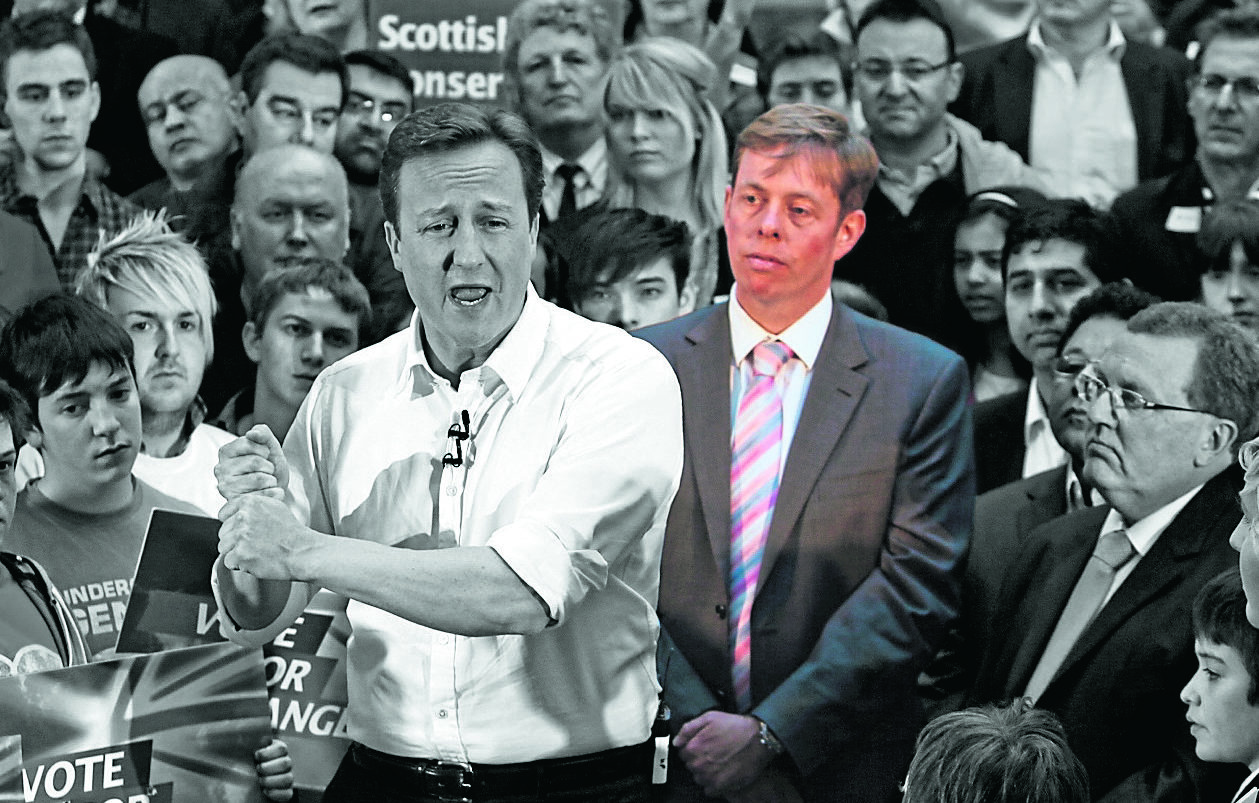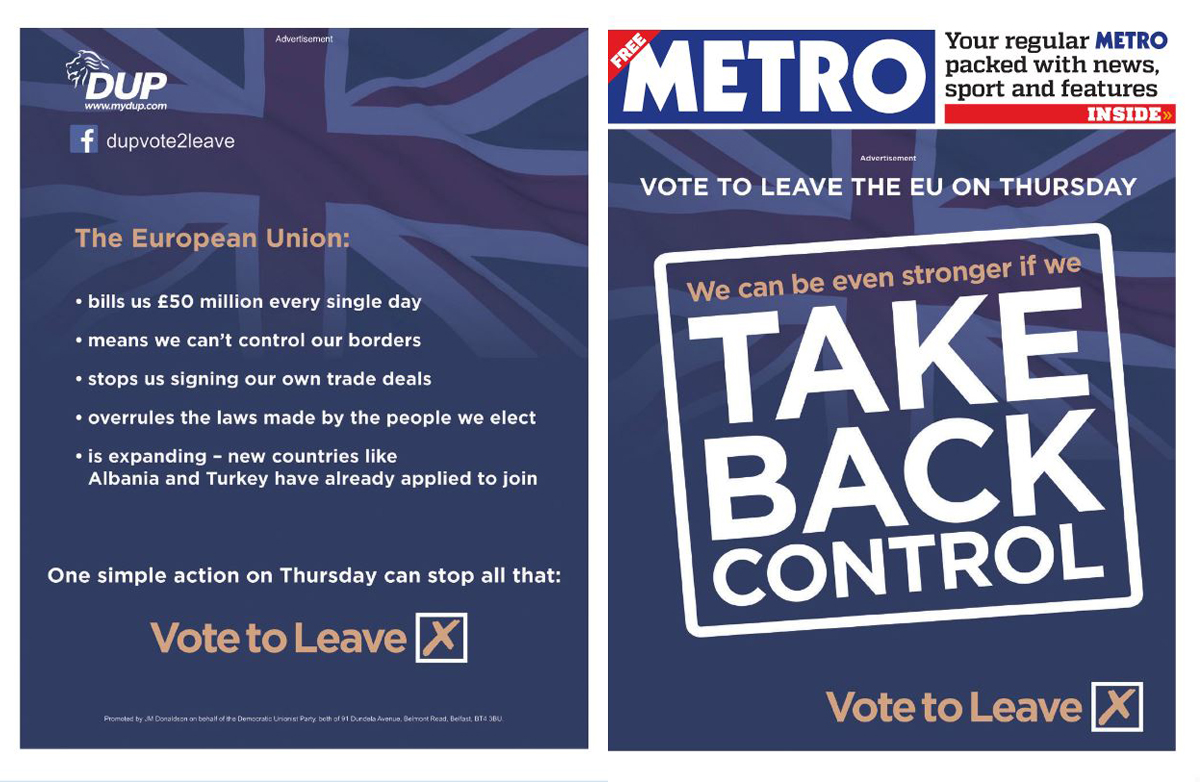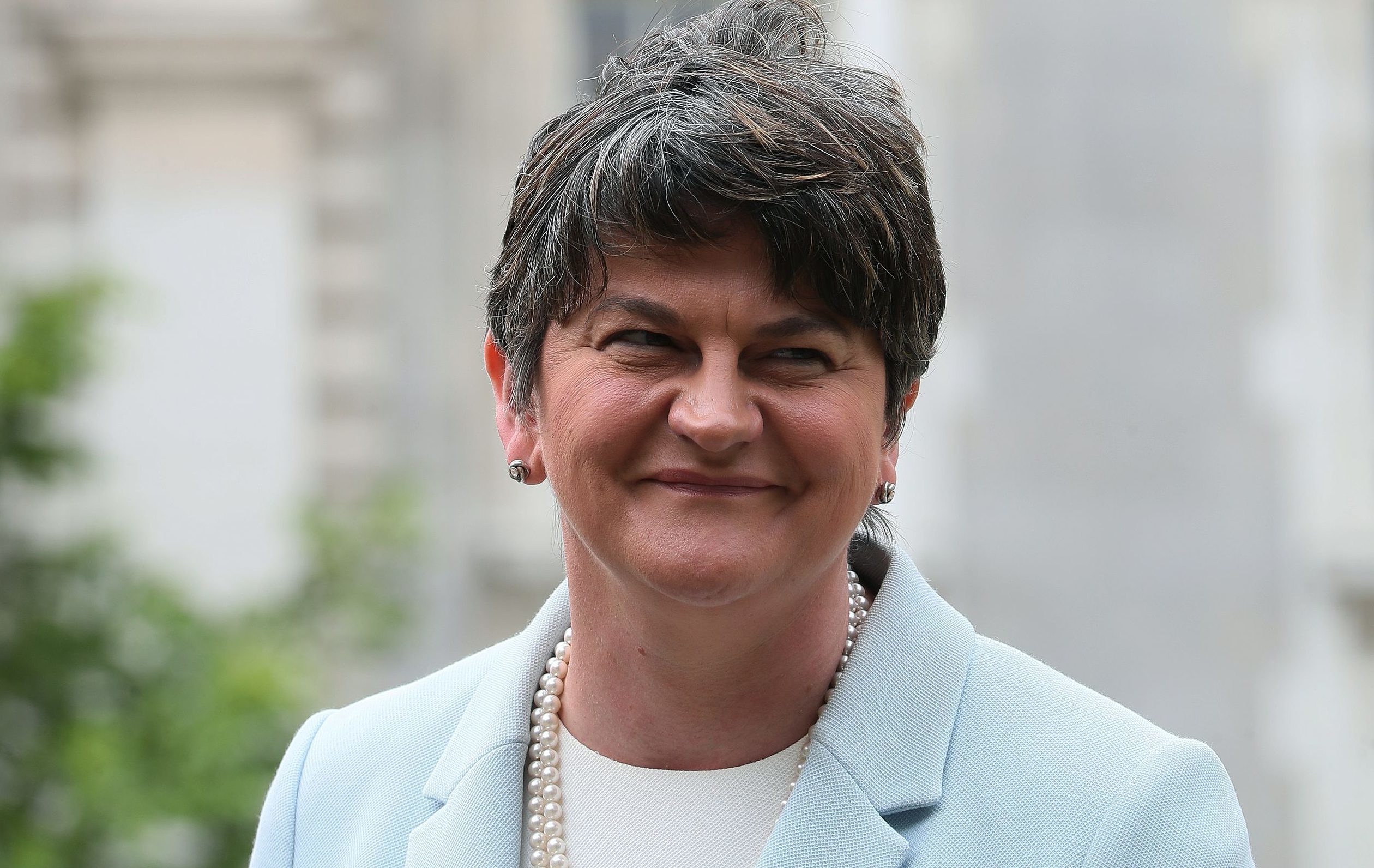
THE international business career of the former Scottish Tory candidate behind a mystery £435,000 donation that boosted the Brexit campaign can be laid bare today.
An investigation by the openDemocracy news website has uncovered official emails, bank transfer files, and court documents revealing an international trail of regulatory concern, legal action and debt linked to the global waste management business led by Richard Cook.
Mr Cook has so far failed to reveal the source of the donation from the Constitutional Research Council to the Democratic Unionist Party, used to pay for pro-Leave campaigning in the final weeks of the 2016 referendum campaign.
However, amid escalating questions around his business career, MPs are demanding that he is called to Westminster to explain the source of the money.
Brendan O’Hara, an SNP member on Westminster’s powerful Department of Culture, Media and Sport (DCMS) Select Committee, said that Cook, a former vice-chairman of the Scottish Conservatives, must “emerge from the shadows and explain where this money came from.”
Today, we detail a series of international deals linked to Mr Cook and his waste management firm, DDR Recycling Ltd, which have provoked concern, revealing how:
- Mr Cook was a defendant in a California court case after his company DDR left an international haulage firm with unpaid bills of over $1.5 million. A judgement was made against him and DDR.
- An illegal shipment of old tyres to India was seized but Mr Cook continued to seek permission to ship rubber waste overseas.
- Mr Cook’s firm blamed an Eastern European firm for the problems with the Indian shipment but when authorities pointed out he was listed as a director of that company, he claimed his LinkedIn account had been hacked.
- After Mr Cook resigned as director, DDR went into liquidation owing around £150,000 in tax despite allegedly depositing $5m in a Cambodian bank account as part of a gold deal.
Mr Cook strongly denies any wrong-doing but the fresh details of his business career in waste management have renewed focus on the payment made to the DUP.
The Northern Irish party retain an influential and potentially decisive role in British politics. The source of the party’s Brexit cash is still a mystery due to Northern Irish donor secrecy laws.
Under British electoral law, parties need to know the source of their donations but last year DUP treasurer Gregory Campbell told the website SourceMaterial that it was not his responsibility to check out Cook and the CRC while an investigation by BBC Northern Ireland also raised concerns about Cook’s business dealings.
Westminster’s DCMS committee inquiry initially wrote to Mr Cook, the chairman of the Constitutional Research Council, about the DUP donation in November. He claimed his response had been lost by the committee. However, we can reveal that Mr Cook did subsequently reply to committee chair Damian Collins in what has been described by sources as “a less than conciliatory manner.”
O’Hara that Mr Cook must now come before MPs committee to explain his role in channeling the so-called “dark money” to the DUP. More than half of it was used to pay for a wraparound pro-Brexit advert in the Metro newspaper, which Mr Cook booked personally.

Mr O’Hara said: “I think he has information which would be very useful to our investigation in relation to spending around the Brexit referendum.
“Where did this money come from and how did it get into the hands of the DUP? And why was it felt to funnel it through the DUP rather than being open and transparent about it?
“It feeds into that whole narrative about secrecy, transparency, the undermining of accepted norms and processes of fighting elections and referendums.
“My concern is that in the crisis that we are wading through at the moment, Mr Cook thinks that he can run down the clock on this and somehow it will be forgotten.
“I sincerely hope that our committee don’t forgot it.”
Mr Cook told the BBC last year that he had not breached electoral law in relation to the DUP donation and, on his behalf, his lawyer Peter Watson has denied any and all suggestions of any wrong-doing.
The new revelations about Mr Cook’s international business in waste management comes amid increasing questions around the funding of the Brexit campaign in the 2016 referendum.
The Electoral Commission, which fined the Constitutional Research Council for failing to report the DUP donation, has so far declined calls to launch a full investigation into the source of cash.
However, judicial proceedings have been launched against the regulator’s decision not to investigate the handling of the DUP’s biggest ever donation.
As well as the Metro advert, the DUP also spent money on online campaigning with the Canadian data analytics firm, Aggregate IQ, used by the official Vote Leave campaign.
This spending was permitted but has raised concerns of co-ordination between different pro-Brexit groups. Undeclared co-ordination is illegal. Vote Leave have already been fined and referred to the police for co-ordinating with another pro-Brexit group.
READ MORE: How businessman’s global trade led from an industrial estate in Scotland to ports of India and courts of California

Enjoy the convenience of having The Sunday Post delivered as a digital ePaper straight to your smartphone, tablet or computer.
Subscribe for only £5.49 a month and enjoy all the benefits of the printed paper as a digital replica.
Subscribe © Brian Lawless/PA Wire
© Brian Lawless/PA Wire